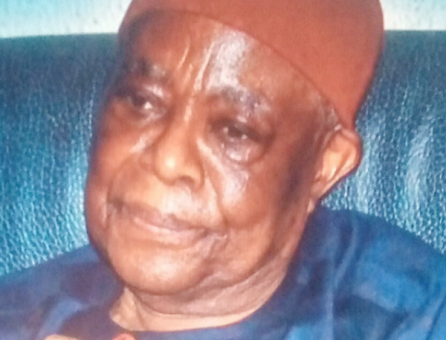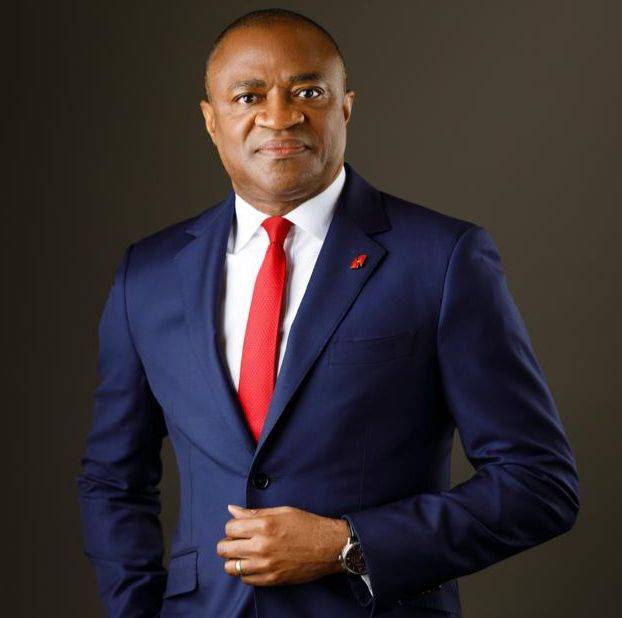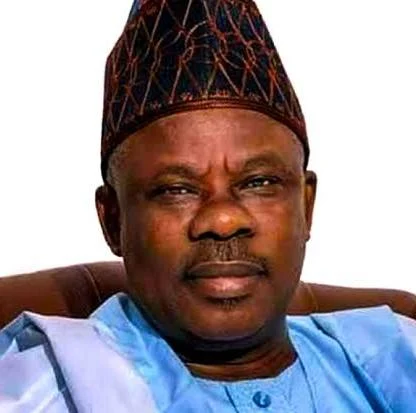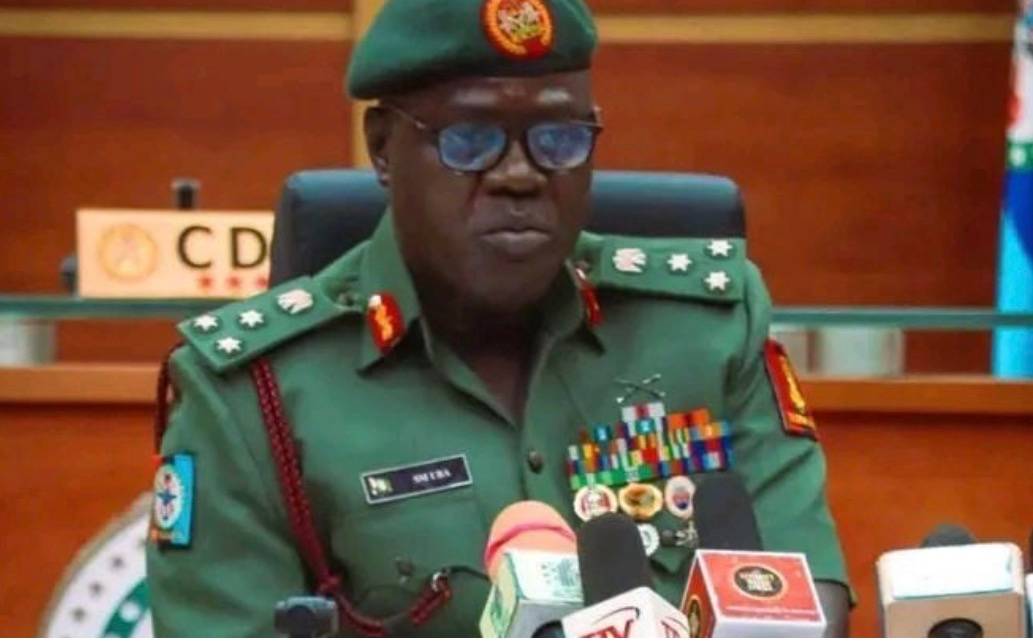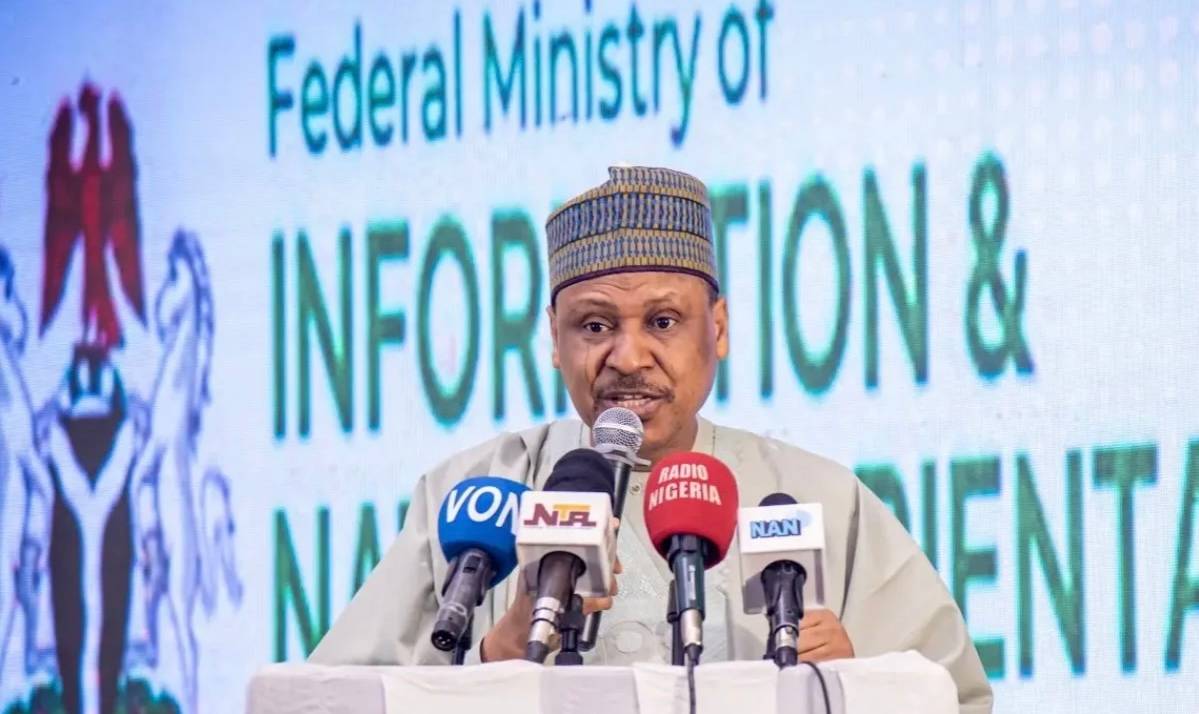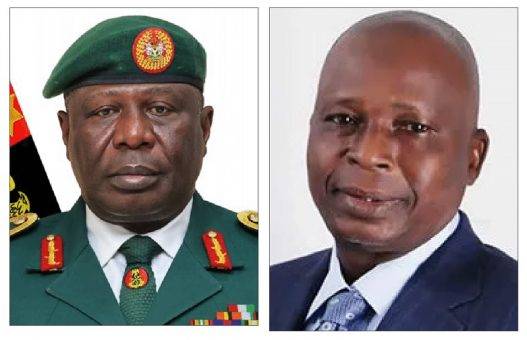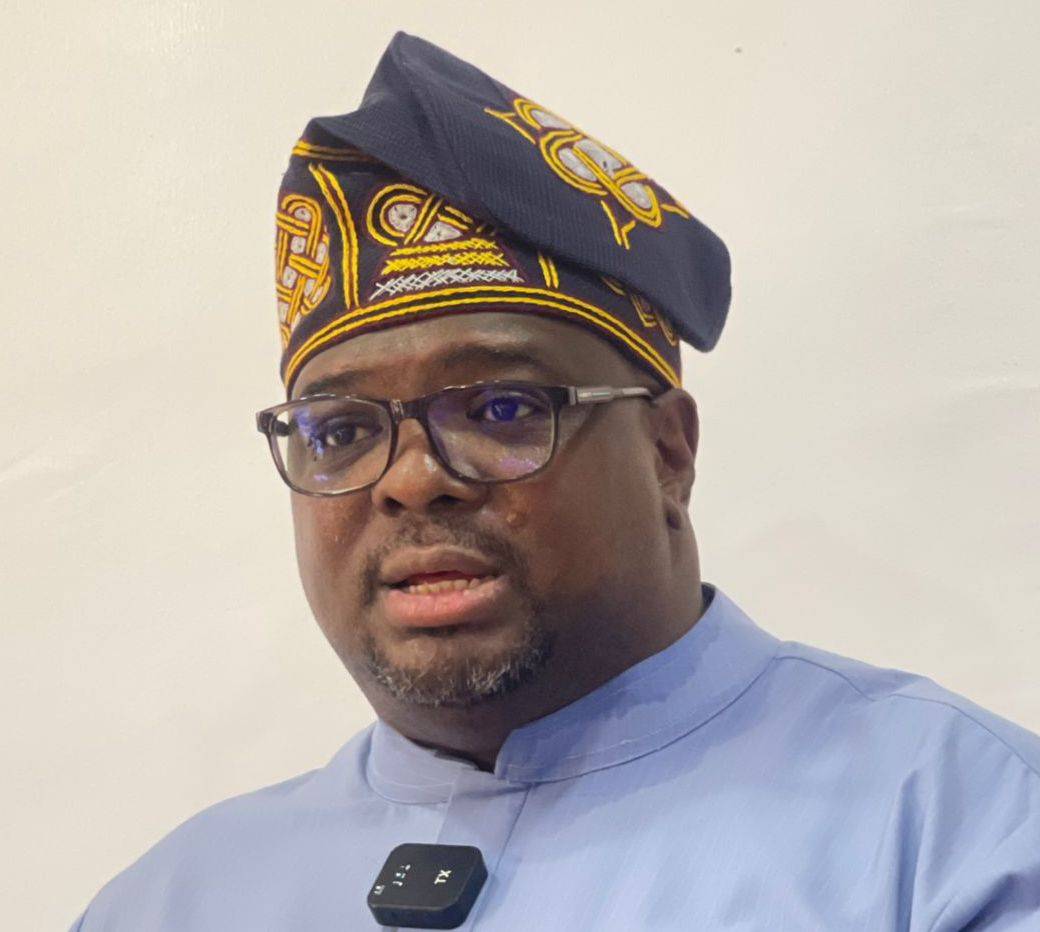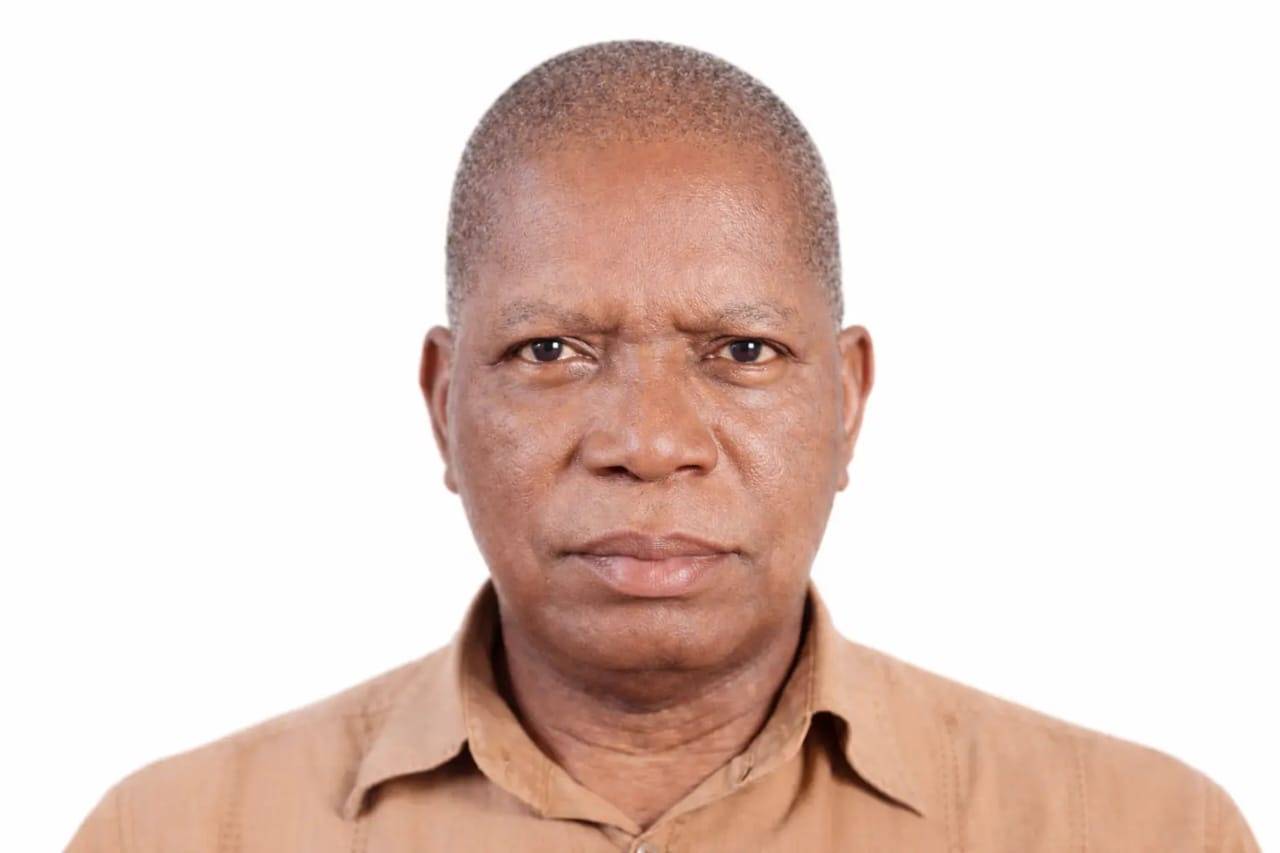By Segun Ayobolu
Although published to commemorate the landmark 80th birthday in November this year of journalism icon, first class economist, accomplished administrator, polished politician and revered elder statesman, Chief Onyeama Ugochukwu, this collection of tributes actually contains reflections on the life and times of the subject at different critical epochs of his existential trajectory. Running into 319 pages and organized around eight sections, the book titled ‘Testaments and Testimonials: Celebrating Onyeama Ugochukwu at 80’, bears the trademark of exhaustive research and meticulous craftsmanship characteristic of its editor, Dr Tunde Olusunle’s style and flair. The 89 chapters that make up the book reflect diverse perspectives and insights into the character and values of a truly unique personality at the various arenas of life on which he has operated in both the private and public realms.
There is no doubt that the central and defining essence of Chief Ugochukwu’s eight decades of existence on planet earth has been his journalism career which served as the launching pad to his latter attainments at higher levels of public service through politics, governance and statesmanship. The sheer array of stellar journalists across generational boundaries who pay glowing tributes to one of their very best in this collection is a function of the high esteem in which the former Editor of the Business Times, West Africa magazine in London and the then hegemonic Daily Times is held in the profession.
Some of the brightest and best minds in journalism attest to his high intellect, impeccable ethical standards, exemplary industry, urbane cosmopolitanism and sheer charisma that defined his journalistic practice. Yet, rather than fuel an attitude of superior aloofness or dismissive arrogance, Ugochukwu combined these qualities with a simplicity and disarming modesty that inspired and encouraged others and refraining from intimidating or diminishing his associates.
Some of the outstanding journalists and/or scholars who tell remarkable tales of their varying encounters with Ugochukwu in the book include Akogun Tola Adeniyi, John Araka, Lizzy Ikem, Lade Bonuola, Eniola Bello, Ayodele Akinkuotu, Lanre Idowu, Chidi Amuta, Olu Obafemi, Solomon Odemingwe, Segun Adeniyi, Femi Adeshina, Dan Agbese, Al-Bishak, Omar Farouk Ibrahim, G.G Darah, Angela Agoawike, Gboyega Okegbola, Emeka Nwosu, Tunde Rahman, Hakeem Bello, Martins Oloja, Dare Babarinsa, Idang Alibi, Felix Adenaike, Oluwole Olatimehin, and Gbenga Adeniyi to name a few. These are names that have carved enviable niches for themselves in different spheres of journalism or scholarship, are of divergent temperaments and outlooks but are agreed on the integrity and humaneness of the man in whose honour they write.
Dr Yemi Ogunbiyi, accomplished scholar and outstanding Managing Director of the Daily Times recounts graphically Ugochukwu’s critical contributions first as Editor of the Daily Times and later General Manager of the Times Publication Division, to the much lauded landmark revitalization and resurgence of the newspaper conglomerate’s titles under his leadership. One of the legends of Nigerian journalism, Mr Lade Bonuola, describes Ugochukwu as an exemplar noting that “No one feels old inside him. The body may wrinkle and it may begin to fold. It may be weak and the steps may be slow, aided by a walking stick; even then, everyone feels as he has always felt, ever young. Onyema is an example of an old young man: Young in the soul and fresh in the body. It is emblematic of a contented man and a loving soul who is ever holding himself in readiness for service. He is a friend to all, an enemy to none. Onyema Ugochukwu is on the last step of the staircase to enter the eighth floor of a chequered life. He did not use the elevator. He climbed and experienced every rung of the ladder!”.
Paying the kind of tribute to journalism that Chief Obafemi Awolowo famously expounds on law in his autobiography, Bonuola submits that “All-rounded education which journalism provides as a newsroom is a school from where you don’t ever graduate! It impels you into constant reading, reading everything in print, as iconic Lateef Jakande was wont to say. In these days of technological wonders, whatever digital platform also has as its menu must be lapped up as well. Knowledge that is inherent in journalism, being currents driven by a market place of ideas, exposes the journalist to all manner of people. It thus gives one an insight into the nature and character of man, his fellow human beings if he is perceptive and alert. Journalism itself offers a stepping stone into another variant of public service: politics at the level of governorship and governance. Ugochukwu’s trajectory, therefore, begins with being an economist, then a journalist and an administrator in his eventful journey through life”.
The story has often been told of how Chief Ugochukwu moved from being Editor of the Business Times in Lagos to become the first African to edit the West Africa magazine in London. But Mr Bonuola reveals some of the background dynamics that informed that development. According to him, “It was when he came to the Business Times that our paths crossed. We were to meet again during the planning and the debut of The Guardian in 1982-1983. He actually received a letter of appointment as associate editor to run the Economy and Business section of The Guardian. The appointment coincided with another offer he got at OPEC. When this was leaked to the management of the Daily Times, the management not wanting to lose him pulled a fast one on him. If what he wanted was to live overseas he could as well go to London to take up the editorship of West Africa Magazine in which the Daily Times had interest. When he returned to Nigeria upon the completion of his tour of duty in London, it was to assume office as the General manager, Publications, at the Daily Times. During his tenure the Daily Times recorded the stunning highest surplus in the annals of the company”.
Politicians like Professor Tunde Adeniran, Senator Ben Obi, Chief Olusegun Runsewe, Chief Timi Alaibe and Eyo E. Nyong among others have fulsome praise for Ugochukwu’s graciousness, selflessness and lack of desperation as a politician. He ran an elevated campaign to be governor of Abia State on the platform of the PDP but moved on without bitterness when the Court of Appeal overturned the ruling of the Elections Petition Tribunal that he was the actual winner of the 2007 governorship election in the state. Other contributors reflect on his invaluable contributions to the electoral victory of President Olusegun Obasanjo in 1999 as head of the campaign media team of a candidate that had a mostly rancorous relationship with the press.
He played critical roles in managing the administration’s media relations after Obasanjo’s victory while also taking initiatives to overhaul national values as head of the National Orientation Agency (NOA) in the administration. As pioneer Chairman of the Niger Delta Development Commission (NNDC), he laid a firm foundation for the agency including drawing up an enduring master plan for the revolutionary transformation of the region. The kind of industrial scale corruption that later became a defining feature of the NDDC never reared its head under Ugochukwu’s leadership.
This collection reveals that Chief Ugochukwu’s reputation is not just a matter of image laundering or public relations manipulations. For, contributions by close family members and leaders of his community demonstrate that his public conduct is predicated on values of care, compassion, integrity and fidelity in his private life. Describing Ugochukwu as ‘a quiet teacher’, a close relation of his wife, Dr (Mrs) Joyce Ugochukwu, Olamire Grant, writes
“There are a few people that have a character worthy of emulating and, without any doubt, you are one of them. It was always a period of personal study of your personality for me whenever we were in close proximity. And I must say I took a lot away with me. You are a great example of an upright and humble man. And your ability to carry everyone along, as much as possible, is extraordinary.
Happy 80th birthday uncle, with plenty of love, respect and admiration”.
And his daughter, Dr (Mrs) Uzo Ugochukwu-Flake testifies that “Some of my favourite early memories of my father includes my brother, Chukwuemeka, and I sitting next to him as we would go through countries and capitals by spinning a globe and landing a target. Countries to which he had been, and coauntries to which he would eventually go. He instilled a love for knowledge in me, and inspired me to think beyond our shores. My father’s love of reading was also notable from a young age. It was not uncommon for him to disappear for hours, lost in a book. He fostered a love of reading and I have so many memories of going through random books in and the level of support I have received from him: getting through school, becoming a medical doctor, and finding my way to have a wonderful family. He may not have agreed with every decision but I knew he was always on my side and offered guidance in a caring manner.
I have had many opportunities in my life that most never have, but through all this, one of my greatest privileges has been having Onyema Ugochukwu as my father and I am eternally grateful to God for blessing me with this remarkable, kind gentleman”.
On behalf of the Ugboaja family, Ihuoma Tina writes that “You took over the mantle of total leadership and fatherhood when our father passed on and made sure we never missed him and stood up whenever the need arose.
You believed in us even when we doubted ourselves, and your encouragement has helped us become better, either in our academic pursuits or in achieving excellence in our careers. Your wisdom and guidance have been invaluable throughout our lives. Your advice has helped us navigate life’s challenges and make important decisions. (When the young ones were desperate to get junior cadre jobs, you insisted that they must get higher and better qualifications so they can have better placements and be more productive and respected)”. As Nigeria grapples with an overly materialistic outlook that glamorizes wealth without industry and power without character, this book acquires added importance because it makes a vivid case for a life predicated on life-affirming values as the basis for a flourishing, thriving and wholesome society.
Culled from The Nation


